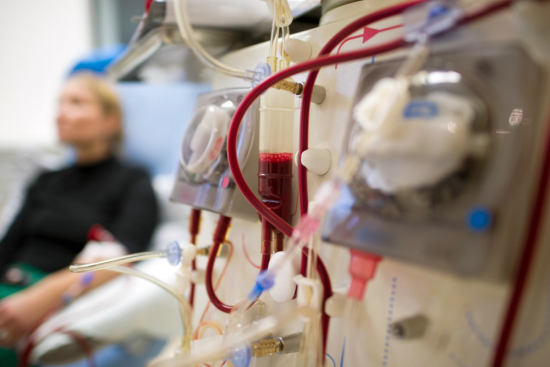Dialysis is a medical treatment that partially replaces kidney function and becomes necessary when the kidneys are no longer able to function normally (renal failure),especially when the patient's function is 85-90% impaired (GFR less than 15).
Turquie santé collaborates with renowned clinics and talented doctors to provide with exceptional patient care. Contact us and have your plan of kidney dialysis in Turkey!








